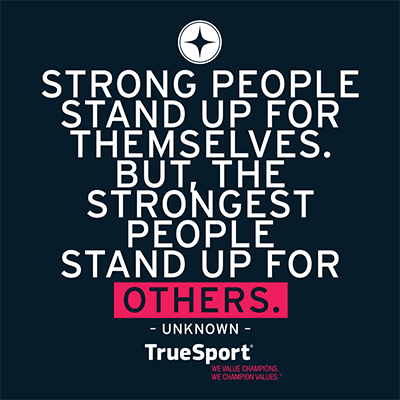
Volleyball a great environment for learning teamwork, developing confidence and building character, but unfortunately it is not an environment immune to bullying. Despite increased awareness and education about bullying, coaches may not always notice it and kids may not want to talk about it.
Here are seven signs an athlete may be experiencing bullying in youth sports.
Sudden loss of interest in sport or activity
It is perfectly normal for kids’ interests to change over time, but a sudden loss of interest in sport or activity may have a more acute cause. Kids are drawn to sports to have fun, spend time with their friends, improve their skills and compete. If that environment no longer feels safe or welcoming due to bullying from a teammate or coach, the activity is no longer fun or appealing, and they may try to avoid the environment altogether.
Inexplicably lost or damaged equipment
In a non-sports environment, lost or destroyed clothing, electronics, toys or school supplies are common signs of bullying. In youth sports, the list expands to include lost or destroyed apparel or equipment, particularly if you notice an increase in frequency.
Not wanting to change clothes or shower in locker room
Bullying often occurs when there is less supervision and greater vulnerability, making bathrooms and locker rooms particularly uncomfortable. Young athletes who are being bullied may suddenly start avoiding the locker room or waiting until they are home to use the bathroom or shower. This can also extend to not wanting to ride the bus to away games.
Complaining of illness or non-visible injury
The stress and anxiety around being bullied can sometimes manifest as real physical symptoms, including headaches and stomach aches. To avoid being around a bully, kids may also fabricate illnesses or minor injuries to get out of going to practice or a game.
Starts bullying siblings or friends
Bullying is about exerting control and power, leaving victims to feel they have neither. One response is to attempt to regain control and power by bullying someone else, often a sibling or sometimes a friend.
Doesn’t want to talk about practice or games
Sports are exciting, fun and social, so it can be a sign of trouble if a young athlete is suddenly withdrawn and reluctant to talk about practices or games. This is particularly the case if they are equally sullen after wins and losses, or good performances and bad.
Outbursts and mood swings
Bullies feed off of their victims’ emotional responses, so kids who are being bullied often try to keep their emotions bottled up. Parents and coaches may inadvertently encourage this response by telling kids to simply ignore their tormentors. Those emotions eventually come spilling out, sometimes as angry outbursts, sudden tears or exaggerated responses to minor stressors.
Takeaway
Exhibiting one or more of the signs above doesn’t automatically mean your young athlete is being bullied, but these signs should not be ignored. Talk with athletes, ask open-ended questions and listen with empathy. Stopping a bully works best with a community approach; consult the coach to come up with a plan of action.
About TrueSport
TrueSport® is a grassroots movement born and powered by the experience and values of USADA–the U.S. Anti-Doping Agency. The TrueSport® mission is simple and bold: to change the culture of youth sport by providing powerful educational tools to equip young athletes with the resources to build the life skills and core values for lasting success on and off the field.

